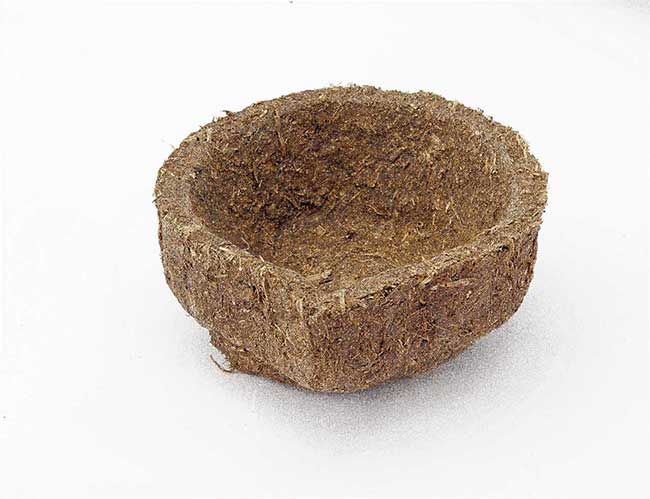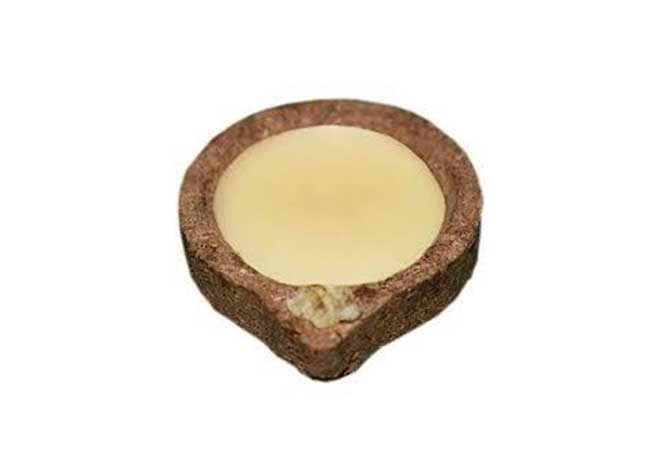New Delhi: Diwali, the festival which depicts victory of light over darkness, good over evil is celebrated across India with great fervour. For 23-year-old Bhavya, the festival means lighting up the house with lights, earthen and wax diyas, lamps and candles, in conventional yet distinct way and preparations for the festival begins well in advance. But this year, keeping in mind the rising levels of pollution, Bhavya decided to ditch wax diyas and candles which are usually made from paraffin wax, a by-product of petroleum refining and switch to eco-friendly celebration.
While searching for an eco-friendly solution, Bhavya came across ‘Zero Brand Zone’, a Maharashtra based organisation that offers eco-friendly diyas, made from traditional mixture ‘panchgavya’ and natural binding mixture of cow butter, neem, peepal and lemon tree leaves. Panchgavya or panchakavyam is prepared by mixing five items procured from cows. While cow is the direct source of three of these products – cow dung, urine, and milk; the other two are dairy products, curd and ghee. The mixture is then put under pressure and heated to 100 degrees.
Also Read: IIT Delhi Students Give Eco-Friendly Touch To Cremation, Replace Wood Logs With Cow Dung Logs
The eco-friendly lamps come in two variants – with and without ghee. While the diya without ghee is priced at Rs. 4 per piece, the one with ghee is valued at Rs. 8.75 per piece. Currently, an individual can purchase the eco-friendly organic diyas either from Zero Brand Zone’s official website or through Mumbai-based NGO We Change. Zero Brand Zone that sells these diyas around the globe has already sold 10 lakh diyas this year.
Also Read: Electricity From Cowdung: South Delhi Municipal Corporation To Set Up Two Biogas Plants
Not only are these lamps environment friendly, but also burn away along with the wick, leaving zero toxic residues. An add on factor to the eco-friendly credentials of the diyas is the fact that no water is used in its manufacturing.
And if you think that the diyas are fragile and so breakable, then you are in for a surprise. Explains S. Kalyana Raman, the innovator and founder of Zero Brand Zone,
In Mumbai, our office is on the fifth floor and from there we did the drop down test and guess what, the diya didn’t break. Coming to production of diyas, we are creating bio-waste a community asset. The diyas are made by 5,000 farmers living in different parts of the country using cow products and natural binding agents. I give them technology and they produce the products. This way, they are also employed.
Also Read: Eco-Friendly Alternatives To Plastic: This Bengaluru Duo Gives A Green Spin To Shopping And Eating
The journey of Zero Brand Zone dates back to March 2017 when S. Kalyana Raman, along with his team started working on making eco-friendly diyas. Talking about the green journey, S. Kalyana Raman says,
The experiment went on from March to July 2017 and in November we finalised the formula and filed a patent for the same in December 2017. Though we have not received the patent yet and are expected to get it this December, but we have already started selling ‘pollution free, 0 per cent carbon emission, 100 per cent organic diyas’.
Also Read: Expert Talk: Remember To Consider These Three Things While Buying An Air Pollution Mask
NDTV – Dettol Banega Swachh India campaign lends support to the Government of India’s Swachh Bharat Mission (SBM). Helmed by Campaign Ambassador Amitabh Bachchan, the campaign aims to spread awareness about hygiene and sanitation, the importance of building toilets and making India open defecation free (ODF) by October 2019, a target set by Prime Minister Narendra Modi, when he launched Swachh Bharat Abhiyan in 2014. Over the years, the campaign has widened its scope to cover issues like air pollution, waste management, plastic ban, manual scavenging and menstrual hygiene. The campaign has also focused extensively on marine pollution, clean Ganga Project and rejuvenation of Yamuna, two of India’s major river bodies.
































